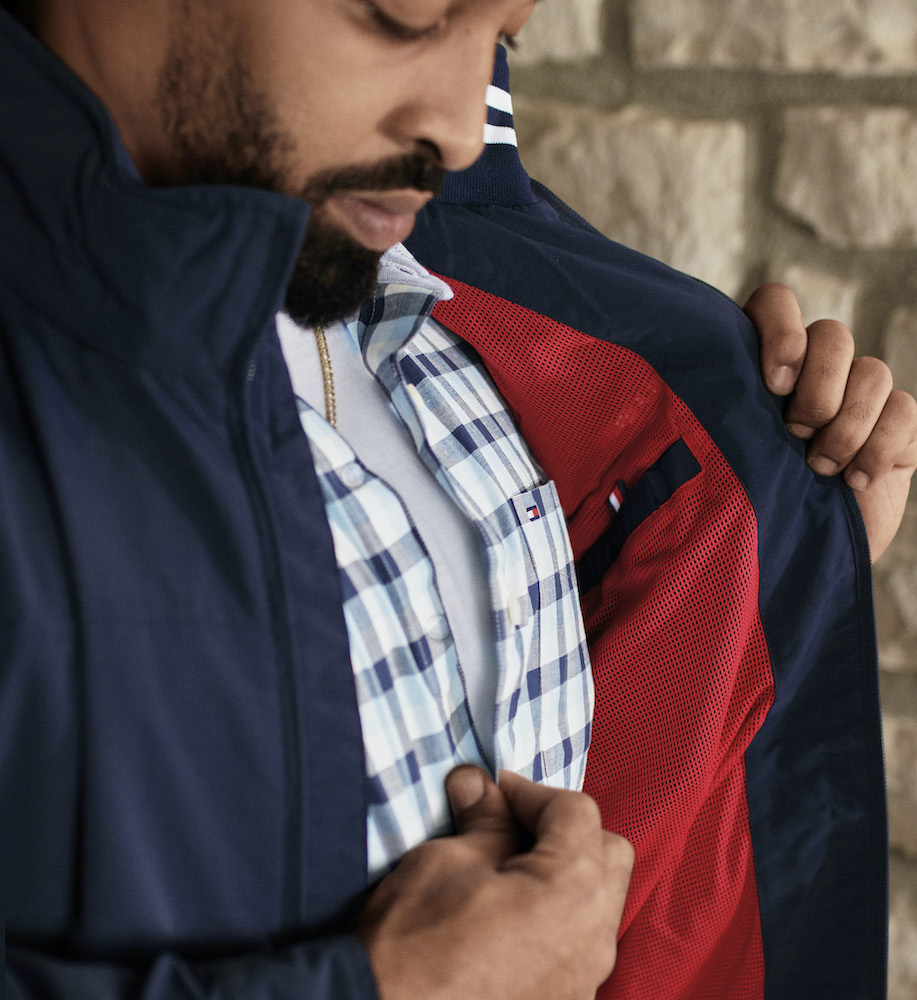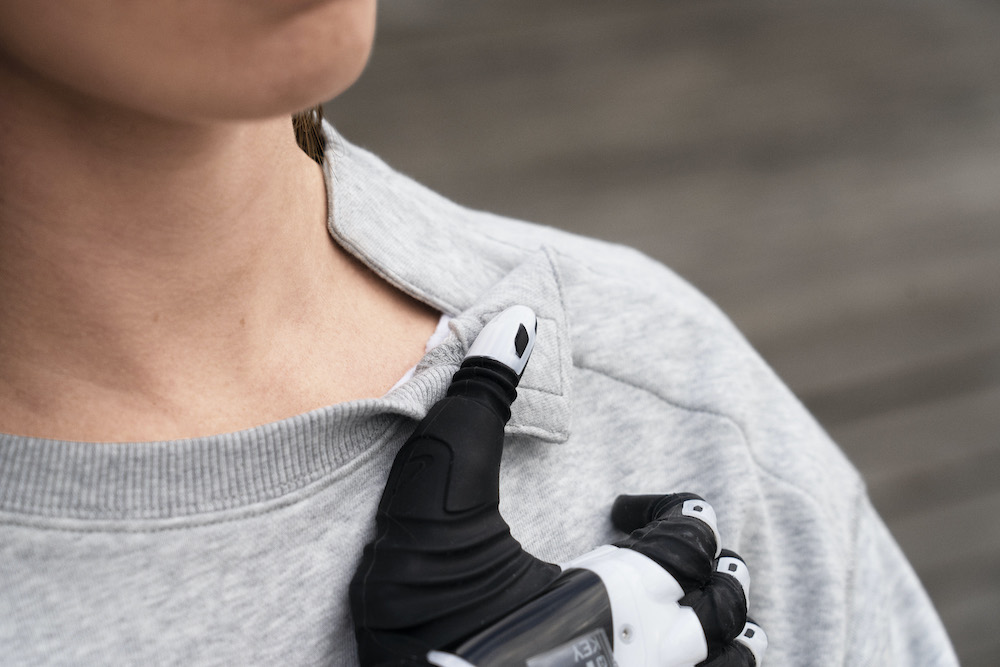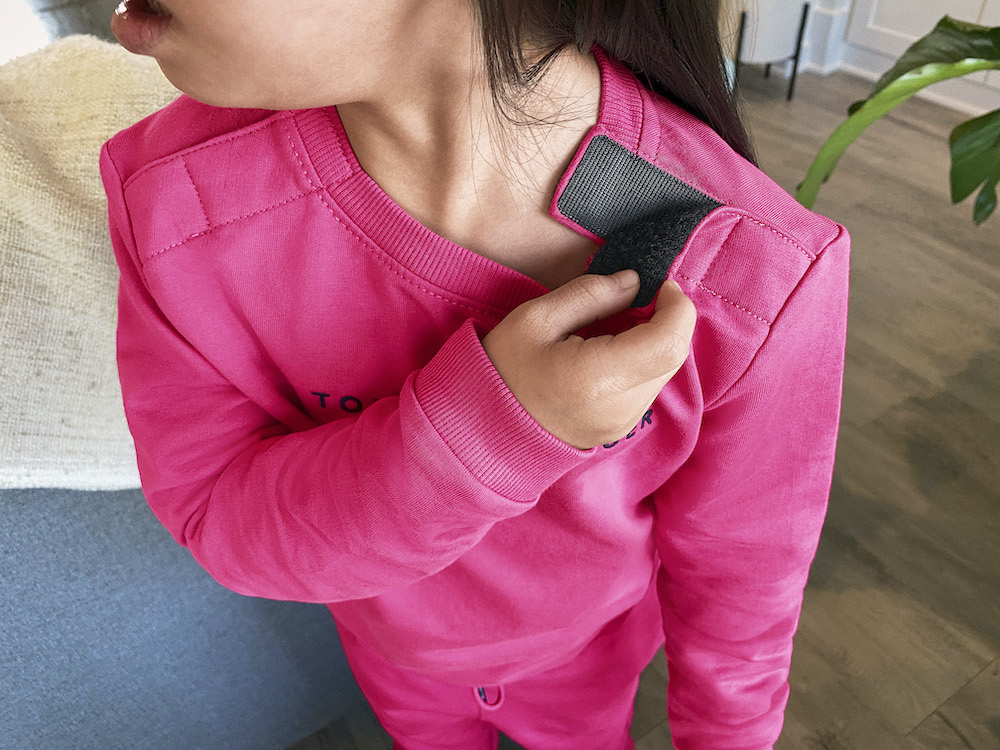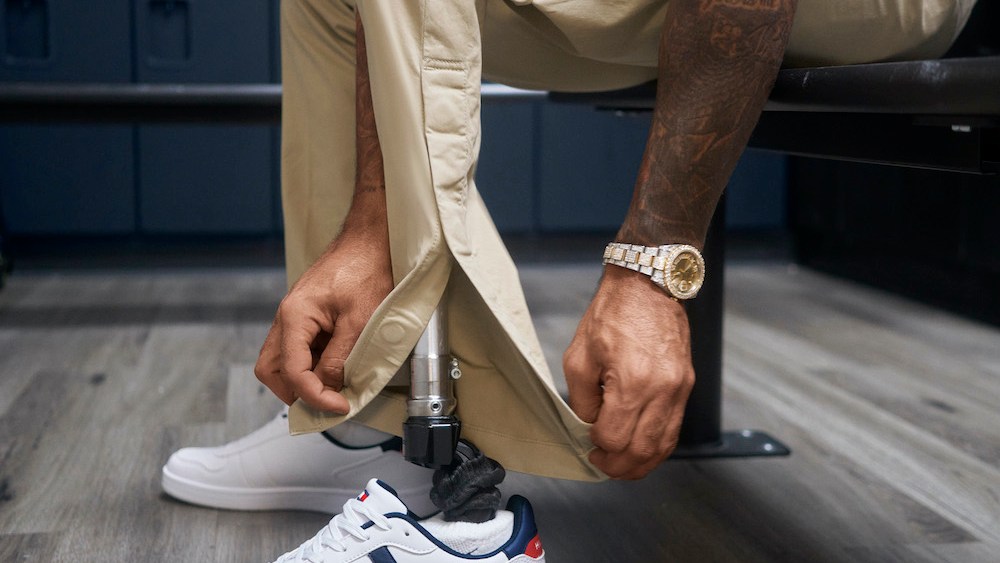Tommy Hilfiger is following through on its promises to be more inclusive. The PVH Corp.-owned brand expanded its adaptive apparel line for adults and children with disabilities to include new styles for spring.

First launched in 2017, the Tommy Hilfiger Adaptive collection provides clothing that maintains the brand’s quality and signature style with helpful modifications that make getting dressed less complicated. The designs offer various solutions, including fits for prosthetics, velcro and magnetic closures, easy-open necklines and expanded openings, one-handed closures, seated-wear pants styles and drawcord stoppers for easier adjustments.
The new collection redefines the preppy aesthetic through a modern mix of court sports and coastal prep styles, and combines the brand’s signature red, white and blue color palette with fresh springtime pastels. Highlights include printed chinos, on-trend polo shirts, loungewear sets and a range of core denim staples.

The collection is shoppable by solution, which guides shoppers through all adaptive modifications, and items arrive in accessible packaging that provides ease of opening and returning. U.S. customers can also shop the collection using Alexa’s voice-enabled technology.
The new offerings underscore the brand’s goal to provide adaptive versions across all product categories by 2025. As a father of autistic children, Tommy Hilfiger, the label’s principal designer, said he has experienced first-hand the difficulties of getting dressed.
“Tommy Hilfiger Adaptive is about creating fashion that is accessible to everyone, regardless of ability,” Hilfiger said. “Getting dressed should be a joy—an experience that empowers you to look good and feel good in what you are wearing. Our adaptive collections have revolutionized everyday dressing for people with disabilities, giving them the independence and confidence to express their individuality through style.”
Tommy Hilfiger’s accompanying campaign features Olympic cyclist Kristina Vogel, Paralympian Rheed McCracken, Paralympic swimmer and track runner Haven Shepherd, former football player Isaiah Pead, paddle boarder Jonas Letieri, model Ashley Young and more.
According to a 2019 study conducted by Coresight Research, the U.S. adaptive apparel market is expected to be worth $54.8 billion by 2023, up from $47.3 billion in 2019. Recently, trims manufacturer YKK filled a void in adaptive designs and debuted a zipper that closes using magnetic force. Similarly, Nike has long been designing footwear that appeals to the differently abled, launching solutions that include voice-activation, self-lacing capabilities and easy-to-slip-on functionality.

Article Credit: sourcingjournal.
